FORT JACKSON, S.C. - Push-ups, sit-ups and running. It's the foundation for the Army's physical fitness program.
On Nov. 23, Soldiers assigned to the 81st Regional Support Command reinforced that fountain with a mixture of creativity, esprit de corps and laughter during the inaugural RSC olympics.
Armed with her clipboard and stopwatch, Master Sgt. Denise Underwood, chief paralegal noncommissioned officer for the command, promised the group of "Wildcat" Soldiers something unique.
"I would like to say that I had an awe-inspiring revelation, but the truth of the matter is that unit olympics can be found in Field Manual 21-20," said Underwood.
While stationed at Fort Campbell, Ky., Underwood said she was introduced to what she knew as, "Judge Advocate General Olympics."
"I was hooked," she said. "I have modified it through the years and have been hosting olympics games ever since."
From a distance, Master Sgt. Loma Lewis, resource management directorate noncommissioned officer-in-charge, could be seen running the distance carrying a make-shift olympic torch crafted from paper and tinfoil.
After the small opening ceremony, Lewis and Underwood promised the Wildcats a physical-training event that was demanding, yet fun.
Underwood said leaders must make physical training enjoyable and interactive.
"Anytime something new is introduced in physical fitness training, it breaks the monotony," she said. "Making sure that the scheduled activity is a fun activity assures maximum participation."
Underwood's formula for the near 90-minute workout included a group marathon of push-ups and sit-ups, and the ironman competition.
Soldiers were quickly divided into three eight-Soldier groups - the Red, the White and the Blue teams.
As each team crafted its own small strategies, judges quickly explained the rules, or lack of them.
Each of the three judges was given the freedom of interpretation and execution of the rules and exercises.
From small nonmonetary bribes to good ole' boy trash-talking, the three teams attempted to sell their assigned judge the opportunity to be a part of a winning team and history.
As each succession of team members grasped the wet ground for their turn at increasing the team collective number of total push-ups, the noise increased as the noticeable esprit de corps instinctively consumed everyone involved in the games.
"Esprit de corps is essential in any organization," said Command Sgt. Maj. Luis Blanco, the command's senior enlisted Soldier. "When the organization works as one, everybody is focused on the mission and on helping each other accomplish the goal. That is when we have reached a point of success in that organization."
Holding Red team member Staff Sgt. Jennifer Nelson's feet during the sit-up event, Sgt. 1st Class Willette Roberts, assigned to the command staff, would periodically glimpse over at Maj. Fredrick Levine, the RSC well-being chief, as he seemingly struggled during the last few seconds.
As both Nelson and Levine finished their rounds of sit-ups, their team members chanted across the small field in hopes of distracting their opponent.
After completing more than 50 sit-ups in one minute, Levine, captain of the White team, paraded around the field like he had just scored the first touchdown of a winless National Football League team.
"What do you have Red and Blue teams'" he asked at his opponents.
With eyes rolled, the two teams continued their task at hand - to quiet any momentum driven by Levine and his lucky black socks.
Underwood quickly continued to the final competition.
Using two gallon jugs full of water, each team selected a Soldier for the demanding task of holding the five-pound make-shift weights parallel to the ground.
Up for the task was Lt. Col. Marshall Anderson, an engineer staff officer, Chief Warrant Officer Kevin McSally, legal section administrator, and 2nd Lt. Albert Johnson, a finance officer.
After Anderson lowered his arms in defeat, McSally and Johnson were head-to-head for the day's final event.
As sweat appeared on McSally's forehead, the cheers for both individuals reached ear-ringing levels as the "last man" event inched closer to an end.
Calm and unemotional, Johnson slowly raised the weights above the horizontal plane to intimidate his competition.
Slowly, McSally's muscles gave way to the day's events and in the end, Johnson stood as the winner of the ironman competition.
Although the White team took the coveted tinfoil torch, the Red, White and Blue teams stood together at the end as one command with a mission to support the Army Reserve.
"Since this is a team-building event, I hope that Soldiers take away a sense of belonging, accomplishment and unit cohesion," said Underwood.
Blanco echoed her comments and said cohesion is important because it shows that the unit is working as a team and understands its mission and its purpose.
"It is important to have unit cohesion because the organization works as a team which allows for any mission to be completed successfully and timely by all members of the unit," he said.
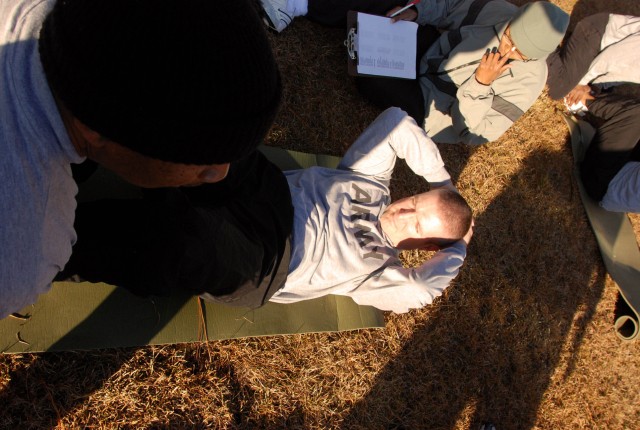
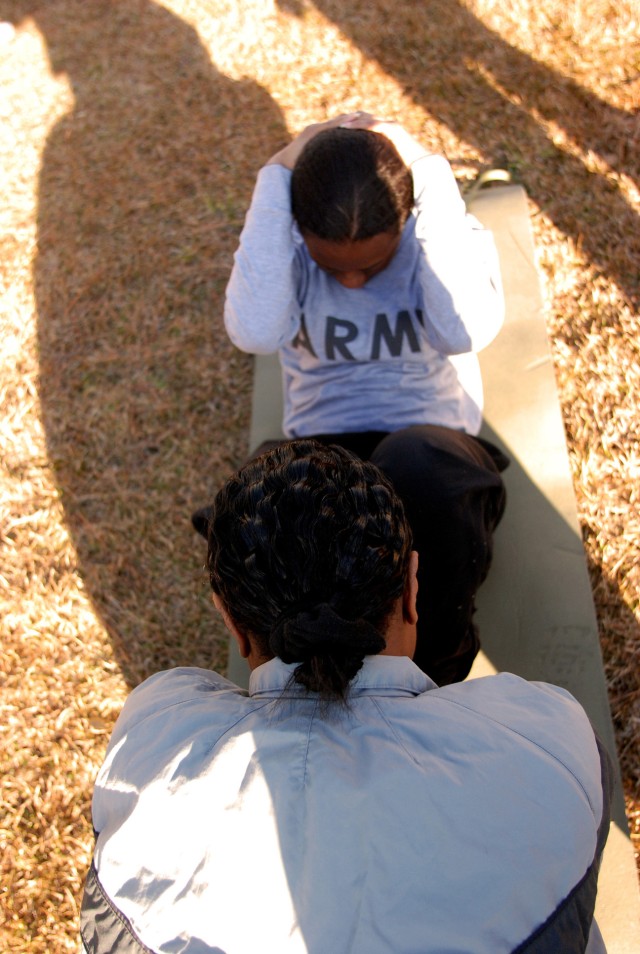
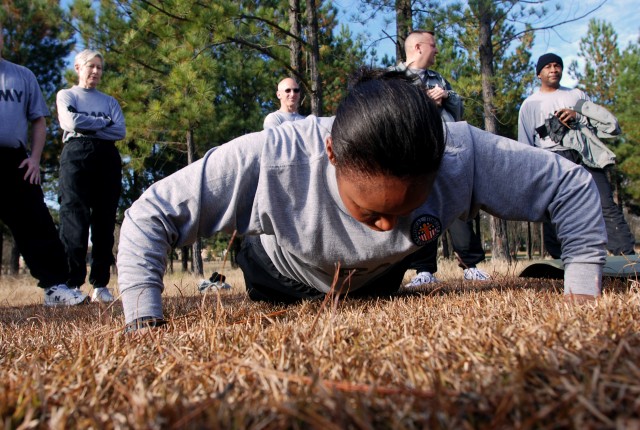
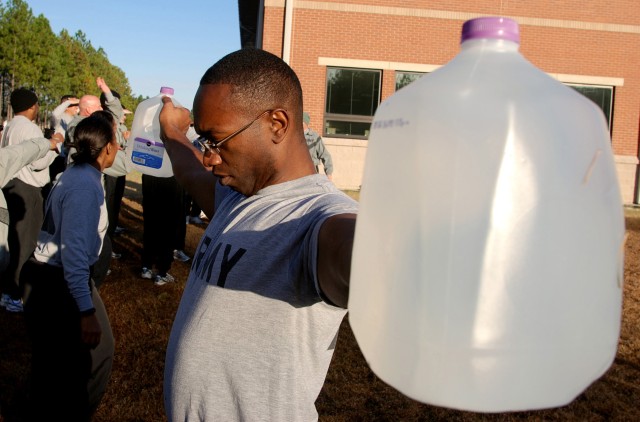
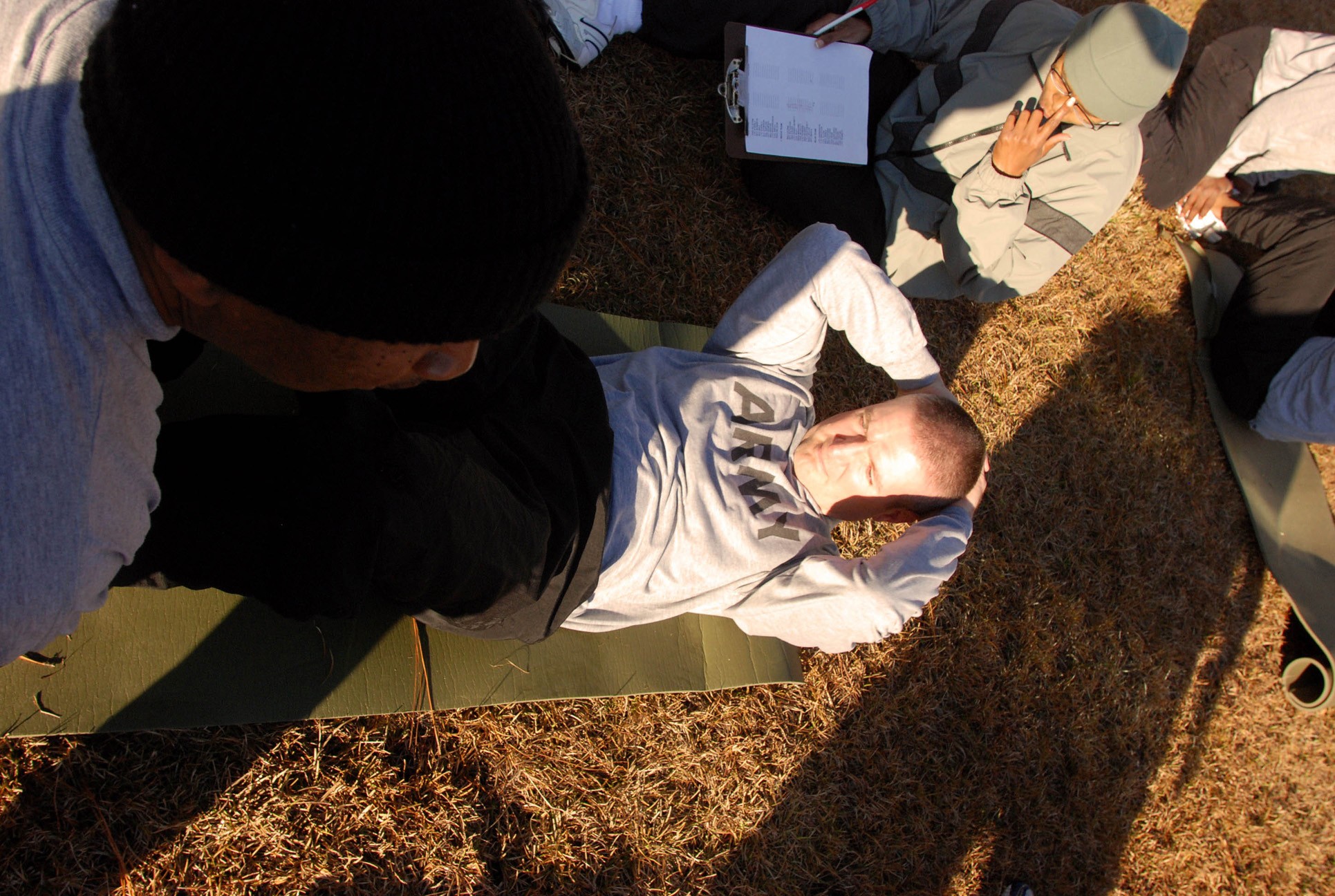
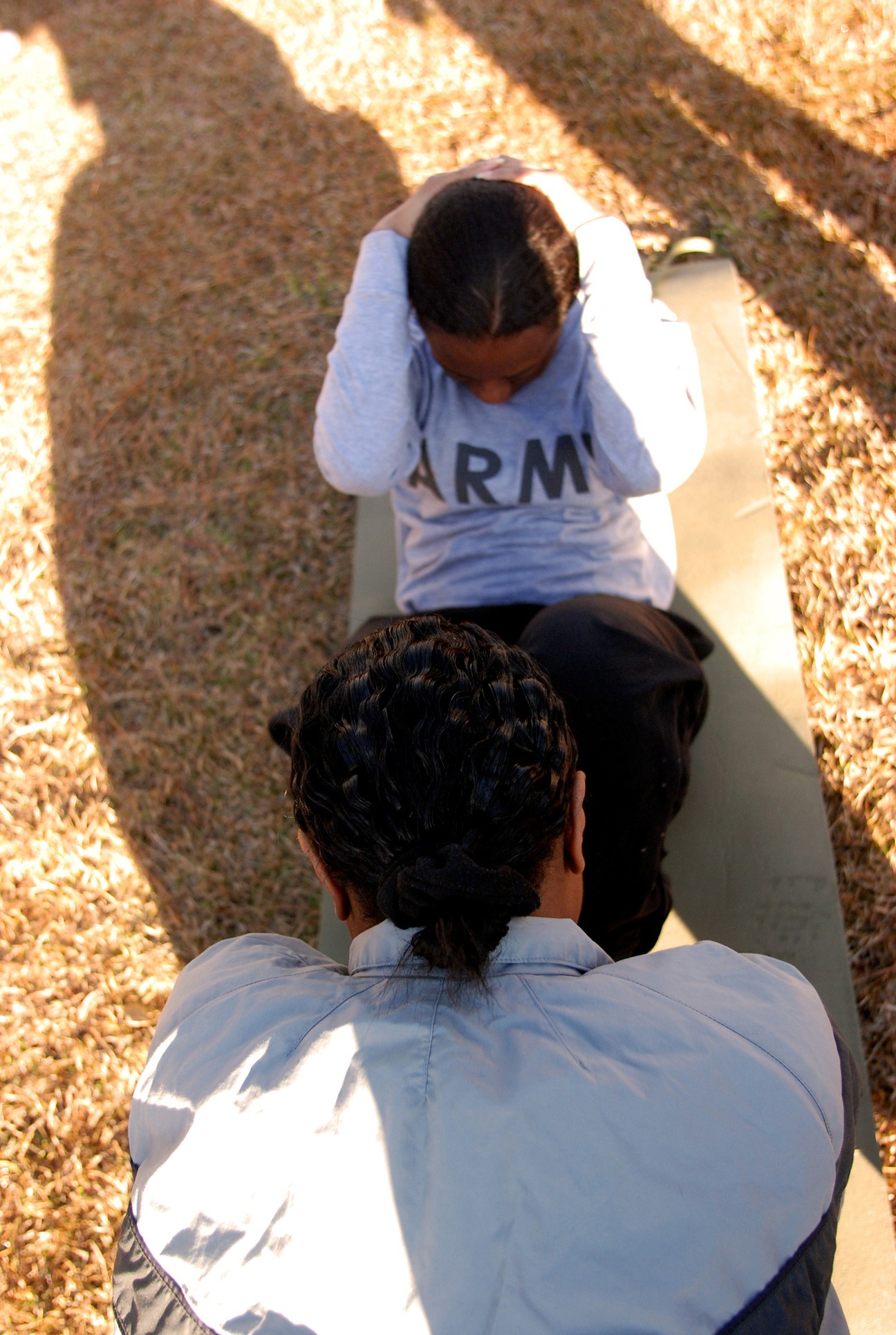
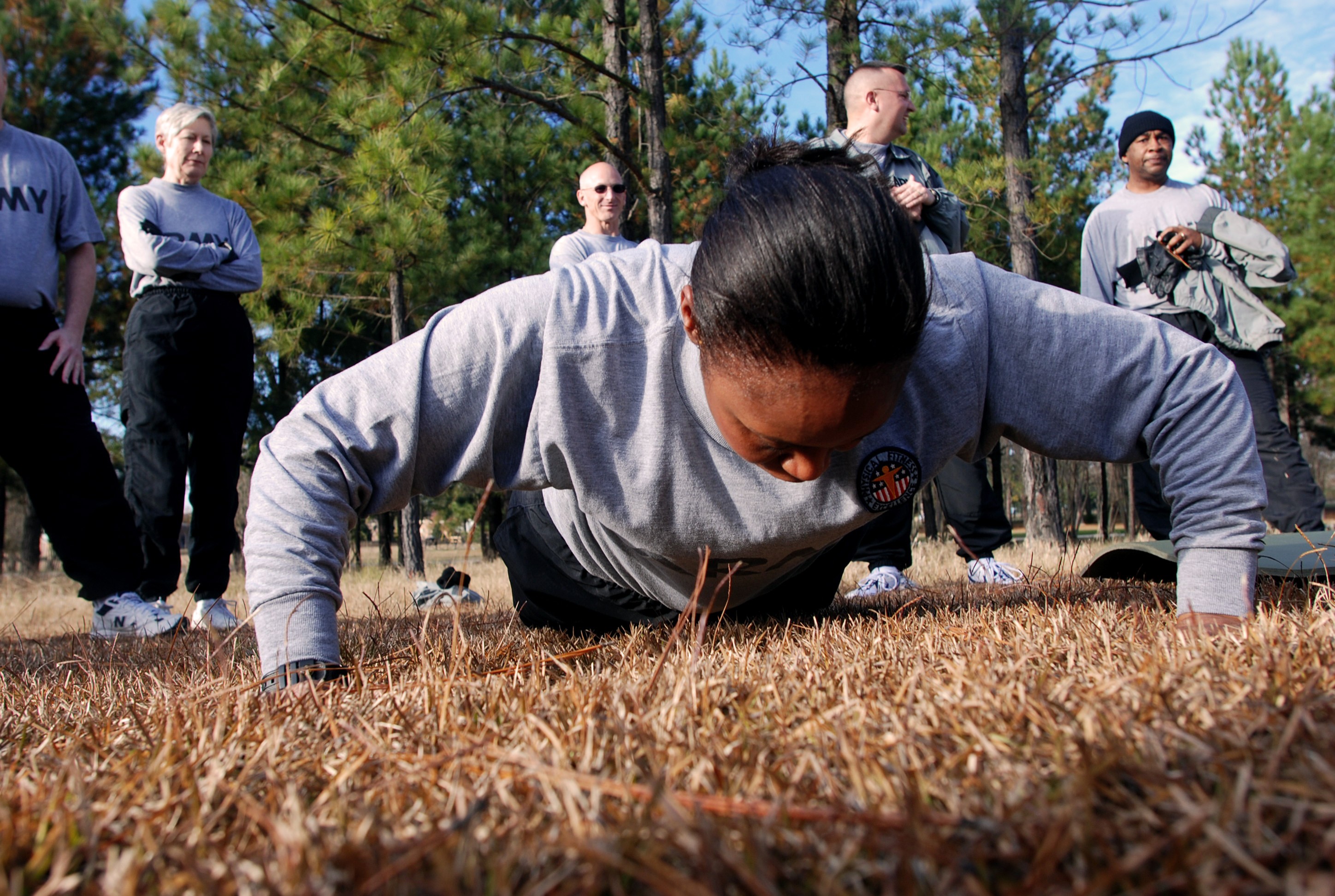
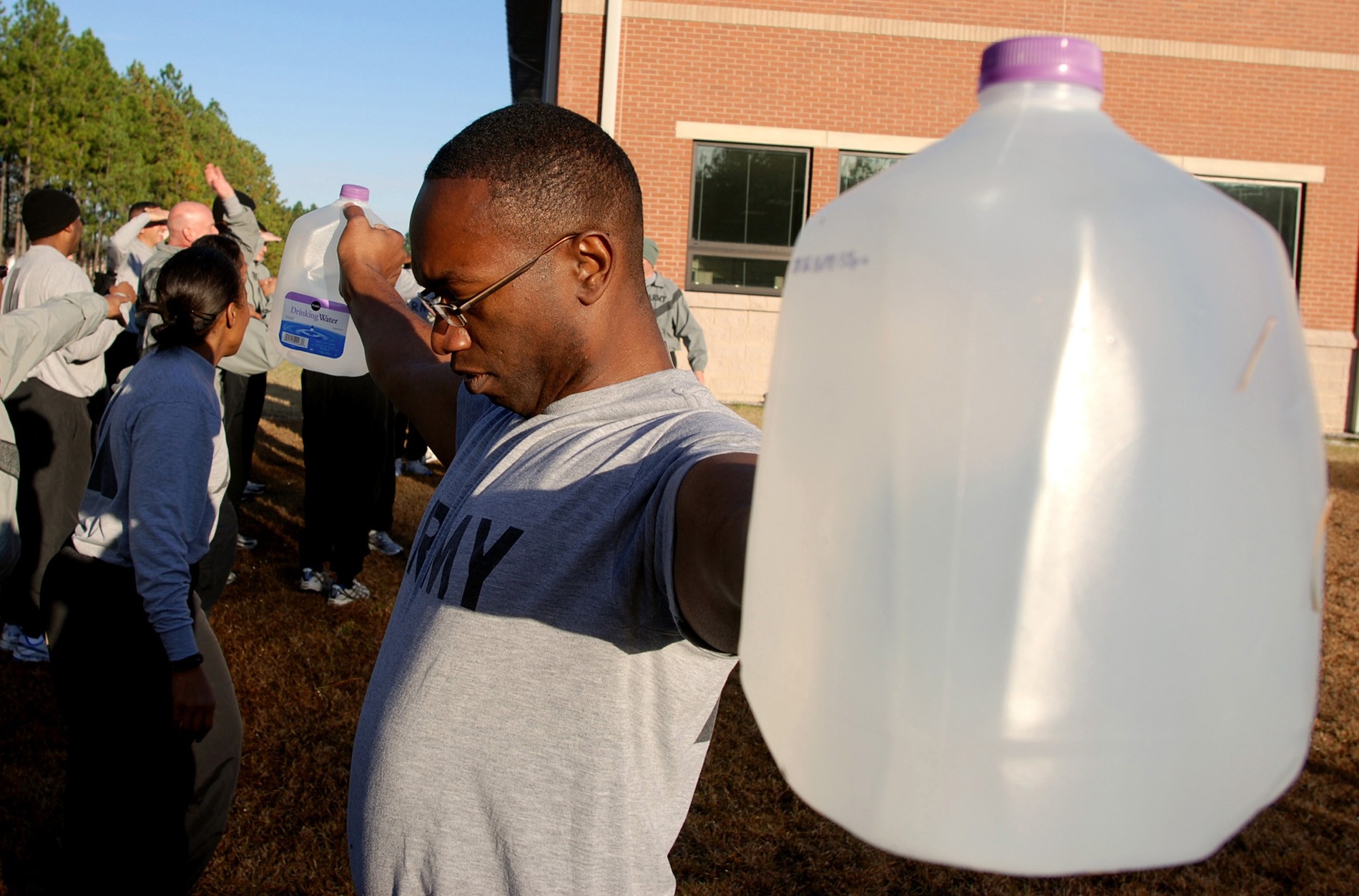
Social Sharing